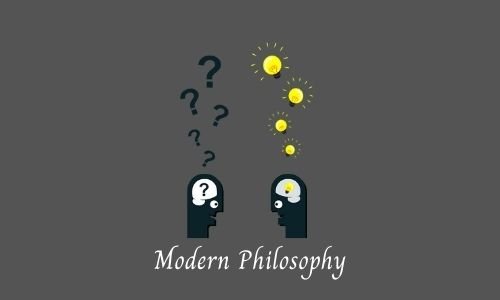Philo of Alexandria
Paul Tillich: The Philosopher of the Depths of Being
Paul Tillich (1886 – 1965 CE), one of the 20th century’s most significant philosophers and theologians, made profound contributions to existentialist thought, theology, and the philosophy of religion.
His groundbreaking work continues to influence both academic and religious discourse today. In this blog post, we will explore his life, education, philosophy, and lasting impact.
Table of Contents
(1) Early Life and Education
Paul Tillich was born on August 20, 1886, in Frankfurt, Germany, into a deeply religious family.
His father was a Protestant pastor, and Tillich’s upbringing in a devout Christian environment significantly shaped his early intellectual development.
Despite the strong religious influence in his early life, Tillich also developed a deep interest in philosophy and the intellectual currents of his time, which would eventually lead him to integrate philosophy and theology into a cohesive system of thought.
Tillich’s education began at the University of Berlin, where he studied philosophy and theology. He also attended the University of Tübingen and the University of Halle, where he deepened his knowledge of philosophy, particularly in the fields of idealism and existentialism.
Tillich’s academic background was marked by his exposure to a wide range of thinkers, from Kant and Hegel to Nietzsche and Heidegger.
These philosophical influences would profoundly shape his thought, as he tried to address existential and theological questions within the modern context.
After earning his doctorate in theology, Tillich spent time studying and working in various European cities, including Marburg and Berlin, where he was introduced to the intellectual currents of the early 20th century. Tillich’s studies were shaped not only by his theological education but also by the growing tensions in Europe, which would soon culminate in World War I.
(2) Early Career and Influences
Tillich’s early career was marked by his involvement in the German army during World War I, an experience that deeply affected his thinking.
During the war, Tillich witnessed firsthand the destruction and despair that could come from human conflict.
This experience intensified his focus on the human condition, leading him to examine existential issues such as the meaning of suffering, death, and human freedom.
In the years following the war, Tillich began to integrate his experiences as a soldier with his academic background, blending his Christian faith with the insights of modern philosophy.
He was influenced by the works of Martin Heidegger, whose existential philosophy questioned the nature of being and the meaning of existence.
Heidegger’s ideas about the “existential ground” of human life deeply influenced Tillich’s thought, especially his understanding of Being as a central theme in theology and philosophy.
Tillich also engaged with the philosophy of Karl Marx, Friedrich Nietzsche, and Sigmund Freud, especially their critiques of religion, which challenged conventional theological assumptions.
Tillich saw these figures as part of a larger intellectual trend that sought to redefine human life in light of modern science, technology, and secularism.
(3) Philosophical and Theological Contributions
Paul Tillich’s most significant contributions to philosophy and theology are encapsulated in his exploration of the nature of existence and his efforts to reconcile faith with modern knowledge.
He sought to bridge the gap between existential philosophy and Christian theology, creating a systematic approach to theology that was deeply grounded in the realities of modern life.
‘(i) The Concept of God and Being
Tillich’s central philosophical theme was the nature of Being. He argued that all human beings, at their deepest level, experience a longing for the ground of Being, a source of meaning and fulfillment that transcends individual existence.
This longing, he believed, points toward a deeper understanding of God. For Tillich, God was not a being among other beings but the ground of all being, the source of life and existence itself.
This idea is encapsulated in his famous concept of “the God above God,” in which God transcends all human understanding and categories but is still the ultimate source of meaning for human life.
Tillich’s understanding of God also challenged conventional views of the divine.
He argued that God should not be conceived as a distant, anthropomorphic deity but as a dynamic force that is deeply intertwined with the fabric of existence.
God, in Tillich’s view, is immanent and transcendent at the same time, working through history and human experience to reveal divine truth.
(ii) Existentialism and the Courage to Be
Another key aspect of Tillich’s philosophy is his existential approach to the human condition. In his seminal work, “The Courage to Be”, Tillich explores the nature of anxiety and the existential fears that accompany human existence, such as the fear of non-being and the fear of death.
He argued that human beings are confronted with these existential fears in the face of suffering, evil, and the inherent limitations of human life.
Tillich’s solution to this existential crisis was the courage to be, which he defined as the ability to affirm one’s existence in the face of these anxieties.
This courage is not a mere act of will but a form of faith—a faith in the possibility of overcoming non-being by affirming the deeper meaning of existence that transcends individual mortality.
According to Tillich, the courage to be involves embracing the divine ground of being and recognizing that, despite all the existential challenges, human life is deeply rooted in a reality that is beyond human comprehension, but which can still provide ultimate meaning.
(iii) Faith and Reason
Tillich is also known for his unique approach to the relationship between faith and reason.
He argued that faith and reason are not incompatible, as some earlier thinkers had suggested, but rather are deeply interconnected.
For Tillich, faith was not a simple acceptance of theological doctrines, but a dynamic act of trust and commitment to the ultimate ground of being.
At the same time, Tillich recognized the importance of human reason in understanding the world and in shaping religious thought.
He believed that reason was essential for interpreting the meaning of existence, but it must be guided by faith and the awareness of transcendence.
In this way, Tillich’s philosophy reconciled faith with modern rational thought, offering a vision of religion that was intellectually credible yet deeply committed to the mysteries of the divine.
(4) Influence and Impact
Tillich’s influence spread far beyond academic theology and philosophy. His writings inspired not only theologians but also artists, writers, and cultural critics.
His works were translated into many languages, and his ideas were influential in both Protestant and Catholic circles.
Tillich was a central figure in the development of theology of culture, which sought to address the existential and cultural challenges of modern life.
Tillich’s exploration of existential questions and his synthesis of faith and reason were revolutionary in their time, and his work remains a critical point of reference for contemporary discussions of the human condition.
His ideas about the “courage to be” have influenced existential psychology, and his approach to the relationship between faith and culture has had lasting impact on how religious communities interact with the modern world.
As a professor at several major American universities, including Union Theological Seminary in New York and Harvard Divinity School, Tillich trained generations of theologians and philosophers.
His emphasis on the importance of intellectual rigor in the life of faith helped bridge the gap between academic theology and practical religious experience.
(5) Legacy
Paul Tillich died on October 22, 1965, but his legacy endures. His work has influenced not only theologians but also philosophers, psychologists, and cultural theorists.
Tillich’s philosophical and theological insights continue to shape discussions on the nature of existence, the role of faith in a secular world, and the relationship between human beings and the divine.
In particular, Tillich’s attempt to integrate modern philosophy with traditional Christian theology continues to be relevant today as many seek to reconcile their religious beliefs with the challenges of contemporary life.
Through his writings, Tillich remains a towering figure in the history of philosophy and theology, offering a profound and intellectually robust vision of the human quest for meaning in the face of suffering, anxiety, and death.
(6) Conclusion
Paul Tillich’s philosophy and theology represent a profound synthesis of existentialism and Christian thought. His exploration of Being, faith, and the courage to be provided a groundbreaking framework for understanding the human condition and our relationship with God.
His work continues to inspire scholars, religious leaders, and seekers of truth in their attempts to reconcile faith with reason in a modern world marked by doubt and uncertainty.
Tillich’s legacy as a philosopher and theologian remains strong, and his influence will continue to be felt for generations to come.








